To provide the best experiences, we use technologies like cookies to store and/or access device information. Consenting to these technologies will allow us to process data such as browsing behaviour or unique IDs on this site. Not consenting or withdrawing consent, may adversely affect certain features and functions.
The technical storage or access is strictly necessary for the legitimate purpose of enabling the use of a specific service explicitly requested by the subscriber or user, or for the sole purpose of carrying out the transmission of a communication over an electronic communications network.
The technical storage or access is necessary for the legitimate purpose of storing preferences that are not requested by the subscriber or user.
The technical storage or access that is used exclusively for statistical purposes.
The technical storage or access that is used exclusively for anonymous statistical purposes. Without a subpoena, voluntary compliance on the part of your Internet Service Provider, or additional records from a third party, information stored or retrieved for this purpose alone cannot usually be used to identify you.
The technical storage or access is required to create user profiles to send advertising, or to track the user on a website or across several websites for similar marketing purposes.
 A new paper from the British Council for Offices outlines how technology is being used in offices to combat Covid-19. While offices may be shut in the UK until 2nd December at the earliest, the paper outlines how the sector is adapting and embracing a range of new technology to ensure that offices can comply with hygiene and social distancing measures. (more…)
A new paper from the British Council for Offices outlines how technology is being used in offices to combat Covid-19. While offices may be shut in the UK until 2nd December at the earliest, the paper outlines how the sector is adapting and embracing a range of new technology to ensure that offices can comply with hygiene and social distancing measures. (more…)






 New research published by
New research published by 
 Staff need on average three days a week (2.91) in the office to achieve maximum productivity, according to a new study by
Staff need on average three days a week (2.91) in the office to achieve maximum productivity, according to a new study by 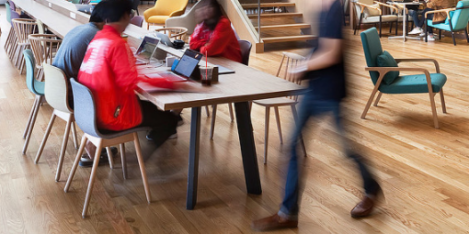
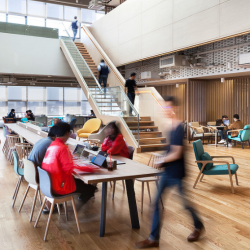 A survey issued by architecture, design, and planning firm
A survey issued by architecture, design, and planning firm 
 Climate change has accelerated the urgency to address the way people live and work. With the UK’s aim to become carbon neutral by 2050,
Climate change has accelerated the urgency to address the way people live and work. With the UK’s aim to become carbon neutral by 2050, 
 As many of us cope with yet another lockdown, optimism is easy to misplace but, for disabled workers, this could result in monumental change for future employment. On the month commencing the 25th anniversary of the Disability Discrimination Act and the run-up to International Day of Disabled Persons, could this be the final push for change? As we swing in and out of remote-working, whether you love it or loathe it, one thing is abundantly clear – it can be done. Something that the
As many of us cope with yet another lockdown, optimism is easy to misplace but, for disabled workers, this could result in monumental change for future employment. On the month commencing the 25th anniversary of the Disability Discrimination Act and the run-up to International Day of Disabled Persons, could this be the final push for change? As we swing in and out of remote-working, whether you love it or loathe it, one thing is abundantly clear – it can be done. Something that the 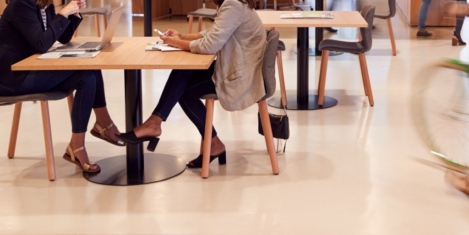
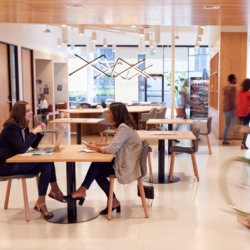 A new report from the
A new report from the 
 With a new national lockdown, the situation in the UK remains unpredictable and complicated, and renewed pressure to work from home has forced many organisations to reverse their back-to-work plans, according to a new study from
With a new national lockdown, the situation in the UK remains unpredictable and complicated, and renewed pressure to work from home has forced many organisations to reverse their back-to-work plans, according to a new study from 
 Employees facing increased job and financial insecurity at the onset of the pandemic suffered a wave of mental distress, according to research published by the
Employees facing increased job and financial insecurity at the onset of the pandemic suffered a wave of mental distress, according to research published by the 
 A recent
A recent 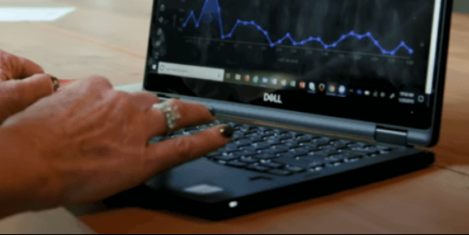
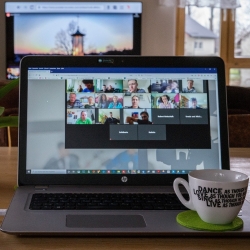 A new survey by
A new survey by 







November 23, 2020
The crisis is making us more authentically human at work
by Jill Dark • Comment, Flexible working, Wellbeing, Workplace design